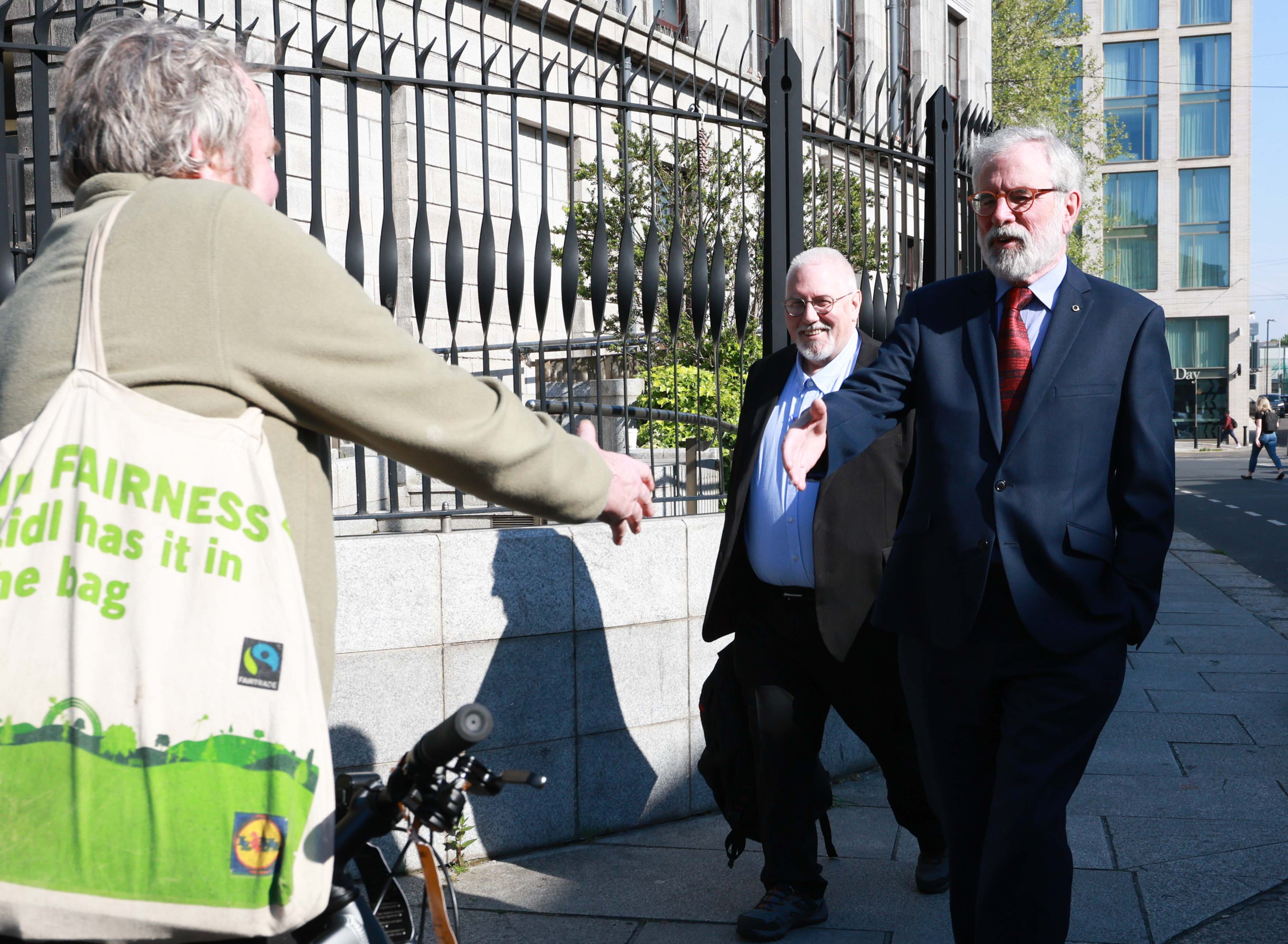THERE must be a few fidgety figures with aching hearts in the Belfast BBC these days. Source of heartache? The Dublin High Court found that a ‘Spotlight’ programme had wrongly presented Gerry Adams as the man ultimately responsible for the shooting dead of the long-time informer Denis Donaldson. The court awarded Gerry Adams €100,000.
Gerry Adams made it clear that he was pleased to have “put manners on the British Broadcasting Corporation”, which, he added “upheld the ethos of the British state in Ireland.” It’s a point I’ve frequently made myself: people too easily accept the famous ‘balance’ of the British Broadcasting Corporation. The clue is in the name. It’s British, and why wouldn’t it load the dice against those it sees as threatening British jurisdiction in Ireland?
Another important point was made by Gerry Adams’s lawyer Paul Tweed. The BBC at any stage in the dispute could have done what it usually does and settled things out of court. Tweed hinted that the British Broadcasting Corporation could well have been under pressure from outside sources to take this case all the way. Whoever could Tweed be thinking of? Surely not the British state.
Since the verdict there have been varied reactions to Gerry’s win. Jane Donaldson, Denis Donaldson’s daughter, was unhappy that Adams had even taken the case.
Other bereaved figures, such as Austin Stack. whose father was killed by the IRA, spoke of their dissatisfaction with the verdict and their not being allowed to testify in court.
While just about everyone would hope for justice for the bereaved, the Stack case had nothing to do with whether Gerry Adams was in the IRA or whether he sanctioned the killing of a double agent within the IRA ranks.
Scan the pages of the Irish Times and/or the BBC and you find repeated criticism of the fact that the case was tried in Dublin rather than Belfast. We heard that people in the South didn’t fully appreciate the pain inflicted by the Troubles, and that the jury members (in their 20s and 30s) were more likely to have found in favour of Gerry Adams than a more ‘mature’ jury. Some people lobbed hints that juries get emotionally swayed whereas judges don’t, and if the case had been heard in the North, there’d have been no jury.
The reason many republicans and nationalists will be pleased with the verdict is that it was a long time coming. During the Troubles, the media felt that they could say what they wanted to, serve up any greasy dish that, it was hoped, would poison republicans. For decades this went on and republicans by and large had to suck it up. Now that reckless hammering of anyone in Sinn Féin has been brought to a juddering stop, and those used to hurling brickbats at the Shinners will need time to learn to cope with a world where you cannot say what you happened to feel like saying about Sinn Féin people.
Will this, as republican critics contend, create a chill factor, with journalists fearful of what they say? Can you imagine – people complaining that they can’t write things because they might have libelled those they disliked?
Let’s have a minute’s silence for the grief of those who see the threat of litigation as a brake on their customary Shinner-kicking. Or what they’d say was free speech.








